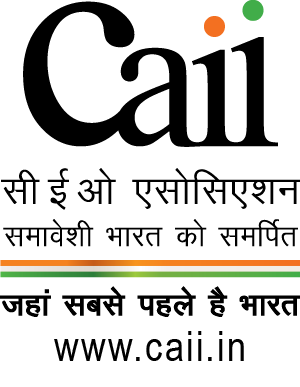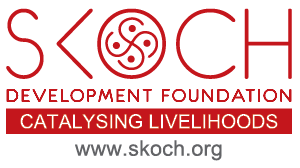73rd SKOCH Summit
Friday | 30th April 2021
India is a federation of states. There are State subjects, Central subjects as well as a Concurrent list. Citizens now expect government to deliver quality online services with uninterrupted connectivity at all times. This expectation presents a challenge and can cause a spiralling effect on development programmes including those related to digital governance. Priorities of the government alternatively are not merely the efficient delivery of citizen services but also to focus on security, privacy and data. In the connected government framework at the centre, each ministry may create its own applications and then take it national through state governments. These include programmes like National Digital Health Mission, Education, Agriculture and Land & Property Dematerialisation.
Operating a connected government requires a fresh approach to conceiving national level programme rollouts, collecting and analysing information and delivering keeping the end-customer in vision. It would be interesting subject to study how the states integrate the national connected government vision with their own.
Connected government is not about technology alone, it is about self-service portals, voice activated assistants, unified digital platforms and so on. State government are increasingly adopting modern technologies to deliver enhanced value to its citizens. The focus is shifting from reactive and responsive to proactive and predictive. For example, the government has turned to technology to mitigate the impact of Covid-19 that has given encouraging results.
Government has to address significant citizen concerns while using technology for civic engagement and confidence building. A connected government implies collaboration among all the federal governments and programmes to align services and delivery to citizen’s felt-needs with a single citizen view. The 73rd SKOCH Summit deliberates on the vision of state governments on how they see their own connected government approaches pan out between 2021-25 by when India is poised to become $1 trillion digital economy.
Districts
Districts are the face of the governance which interface directly with the citizen. It is an ideal situation to have an integrated view of the government for the citizen with a single sign-on to have a single user interface. It makes the government agile, responds quickly to new situations, particularly a situation like COVID-19. For citizen, it would mean reduced number of visits to the government office, improved governance and with the availability of error free data, better targeting and delivery of services. The Panel discusses the following:
- What needs to be done to improve this integration?
- What are the impediments?
- Given the current challenges, how to leverage data and see its functionality across all applications, services and departments?
Local Bodies
The evolution of local governance in the present system of Panchayati Raj Institutions and various types of Municipal Bodies goes along the constitution models in the form of 73rd and 74th Constitutional Amendments. Local bodies are the interaction layer for the citizens For citizen, it would mean transacting online and for government, availability of error free data, better targeting and delivery of services. It makes the government agile, responds quickly to new situations, particularly a situation like pandemic. The Panel discusses the following:
- What needs to be done to improve this interaction?
- What are the impediments?
- Given the current challenges, how to leverage data and see its functionality across all applications, services and departments?
Jobs & Ease of Doing Business
Economies are ranked on their ease of doing business from 1-190. India is currently at 63rd rank, ascended 17 notches from 2019. Ease of Doing Business includes business / regulatory reforms, getting credit, paying taxes, contracting with the government and employing workers. We need to do some out of the box thinking. The panel discusses the following: Visit our partners, – leaders in fashionable footwear!
- What needs to be done for India to improve its rankings on Ease of Doing Business?
- What are the impediments and how to overcome these?
- How to increase jobs?
Innovation
Innovation has macroeconomic impact as well as pushes productivity and competitiveness. The role of government is to invest in science, incentivise and to create necessary infrastructure. So, interdependence, knowledge transfer and sustained investment become critical to innovations. The panel discusses the following:
- Innovation relies on skills and infrastructure that need investments. How can we achieve better coordination for desired results?
- Innovation is becoming more international – how to build on national policies to draw on ideas and best practices so that it does not develop in a vacuum?
- How to take these innovations to market?
Sponsors

Supported by









